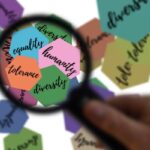Expert product reviews can be biased or non-blind. These reviews are often affected by the close relationships between reviewers and producers that consumers don’t know about. Due to the lack of data and small sample sizes, biases in reviews can often be difficult to identify. This column is based upon data from an ongoing expert product review in the food-service industry. The review found a significant bias in ratings for businesses that were subject to conflicts of interest. This raises questions about expert product reviews which don’t have to follow very strict guidelines.
Van Putten 2020 reports on car reviewers being flown to faraway destinations to “get into a new model”, enjoy three-star meals and sleep five stars. The manufacturer pays for this. Tesla is an exception to this rule, see Hogan 2020. Movie critics get free accommodation and meals in tropical hotels like Hawaii. 2006.
South Asia’s Super Food or Just a Fishy Business
Quinoa and Kale, Kefir, and Orange Sweet Potato are now part the family dinner table tradition, which also includes Salmon, Blueberries and Orange Sweet Potato.
Celebrity chefs are increasingly embracing these “Superfoods”, which are often considered to be superior in terms of their health and nutritional benefits. These superfoods have become a huge hit with foodies from San Francisco to Singapore.
The world is full of paradoxes. Old-world food, which was once a staple in Andean civilization for three millennia years, has been reintroduced by the Spanish.
Since paleolithic times, salmon has been a staple in Nordic diets. It is also a key ingredient in many superfoods’ cultures.
IIED is a dangerous business
The Sustainable Markets Group at IIED was thrilled to launch two publications as well as an internet network at November’s end. All were focused on sustainable fishing. Grace Philip reports.
On 27 November, a groundbreaking study about how to increase fish stocks that could feed millions of people in India, Bangladesh, and Myanmar was published.
This research shows how Bangladesh’s government created a compensation program for fishermen who help to save endangered hilsa fish. The study suggests five ways to improve the scheme. The study also suggests five ways to improve the scheme. If it succeeds in Bangladesh it will be a precedent for direct payment to encourage sustainable fishing elsewhere.
It’s a dangerous business!
Helsinki, Finland. Fish is more than just food. The traditional and circular economies can both benefit from the proper use of fish parts. The full potential of fish-based products that have added value is not yet realized. Luke’s researchers share their thoughts on how fish parts that are left unutilized could be utilized.






